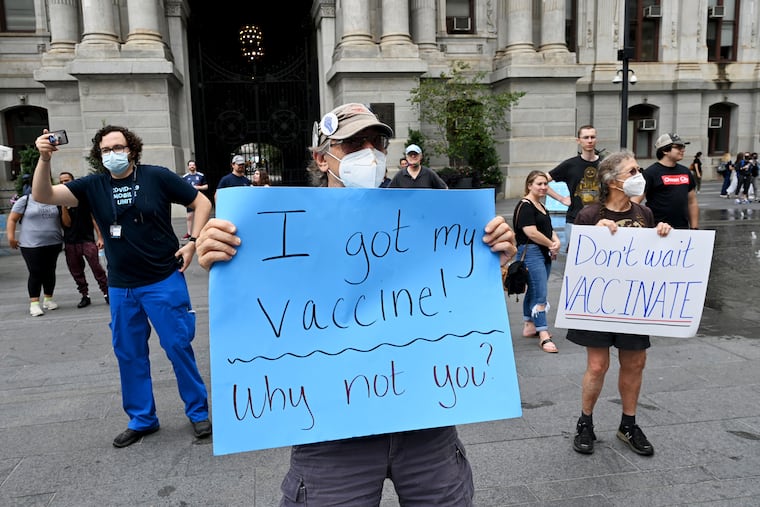All adults should get boosters, CDC says amid omicron worries. Here’s how to tell if it’s time for an appointment.
This week, the CDC said all adult Americans should get boosted.

UPDATE: All 16- and 17-year-olds are also eligible for booster shots as of Dec. 9.
All vaccinated adults should receive coronavirus booster shots, the CDC said this week amid worries about the new omicron variant of the virus.
All adults are eligible for boosters after a certain amount of time has passed since their original course of vaccination: Everyone 18 or older who received the second Moderna or Pfizer shot at least six months ago is eligible, and everyone 18 or older who received a Johnson & Johnson shot at least two months ago is eligible.
The CDC strengthened its recommendation for boosters on Monday, saying not that all adults can get a booster but that all should. Vaccination is key for slowing the spread of the virus and preventing further mutation; the newly emerging omicron variant prompted public health officials across the country to renew their calls for Americans to get vaccinated.
“I strongly encourage the 47 million adults who are not yet vaccinated to get vaccinated as soon as possible and to vaccinate the children and teens in their families as well,” CDC Director Rochelle Walensky said in a statement, “because strong immunity will likely prevent serious illness.”
Booster doses were approved for all adults on Nov. 19 and were available earlier to vulnerable people and Johnson & Johnson recipients. The booster increases immune protection against COVID-19, including delta and older variants.
At least 40 million Americans have received booster doses so far, representing about 20% of all fully vaccinated people, according to the CDC. That includes more than a million in Pennsylvania, though the CDC numbers may be undercounted because it’s not always possible to link doses to their recipients.
Vaccinations are widely available at pharmacies, doctor’s offices, and clinics. Clinic locations are available at vaccines.gov and within the city at phila.gov/vaccines.
People need to re-up their antibodies with a booster, health officials say, because protection from the first course of immunization has been found to wane over time, something that can be normal with vaccines. In the first months after vaccination, the Pfizer and Moderna vaccines are well over 90% effective at preventing immunized people from catching the virus.
“We want people’s protection to be up in the 90%-plus range,” said Burlington County Health Director Herb Conaway.
Recipients can get any vaccine for the booster, so many who received Johnson & Johnson, which has been shown to be much less effective than the two others, are choosing Moderna or Pfizer. Generally, people experience mild to moderate side effects, if any, similar to those experienced with the previous doses.
This week, Pfizer is expected to ask the federal government to approve boosters for 16- and 17-year-olds. Children are not yet eligible for boosters, but all 5 and older are now eligible for vaccination. Officials urged families to immunize their children.
» READ MORE: COVID-19 vaccine clinics are busy again as people line up for pediatric shots and boosters in Pa. and N.J.
Though it’s unknown how effective the vaccines will be against omicron, which is a new mutation of the virus, getting vaccinated and getting a booster is the best tool for protection currently available.
“The booster basically enlarges the capacity of your immune system to recognize all kinds of different spike proteins it’s never seen,” National Institutes of Health Director Francis Collins said Sunday on CNN. “There’s no reason to panic, but it’s a great reason to go get boosted.”
Said New Jersey Gov. Phil Murphy on Monday, the day after receiving his own booster, “The added protection from a booster is no longer just a bonus, it’s a necessity.”
And omicron aside, the booster protects against delta and older variants of the virus, meaning it protects against what is spreading in the community right now. The vaccines have been highly successful in preventing severe illness and death.
“We know that is our best mitigation strategy in containing the spread of the virus,” said Pennsylvania Department of Health spokesperson Mark O’Neill. “We also know the path to controlling the virus and limiting variants: Get vaccinated, get boosted, and take your children to get vaccinated.”
Staff writer Erin McCarthy contributed to this article.